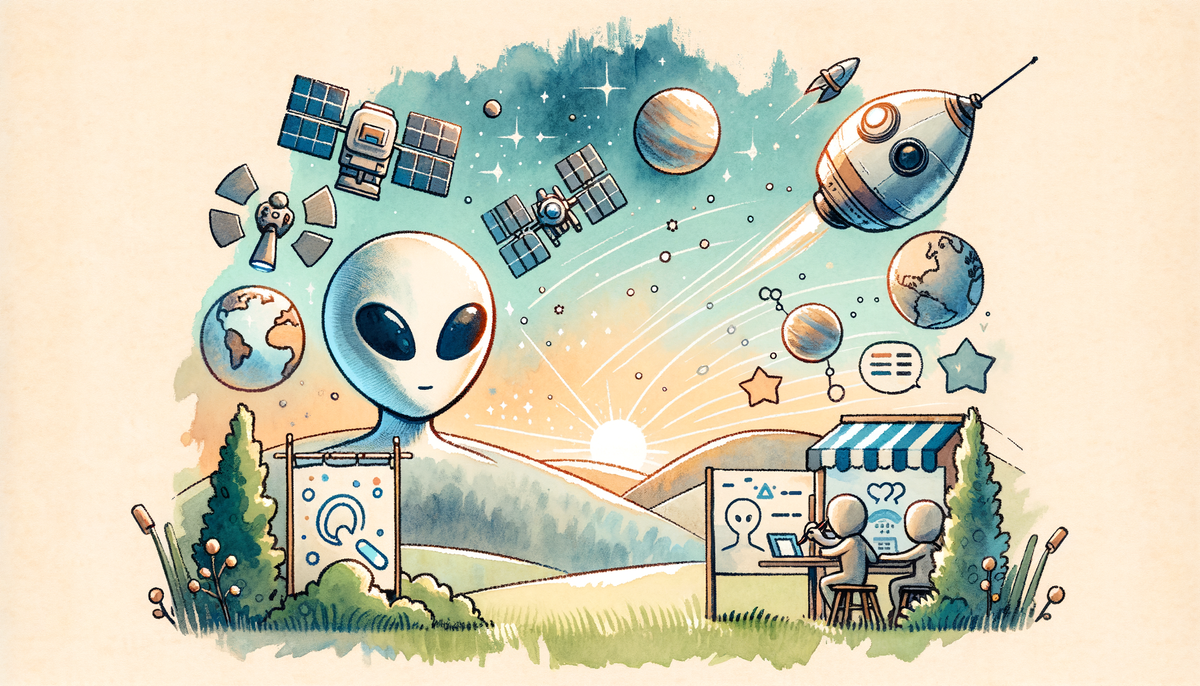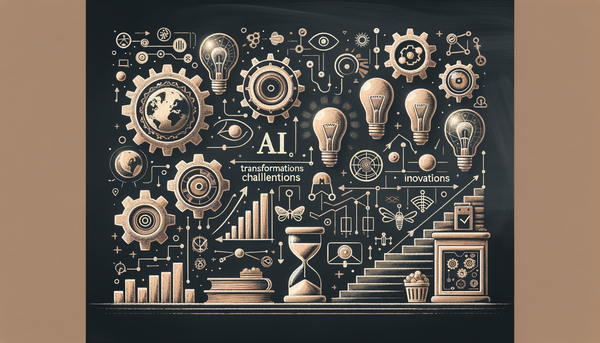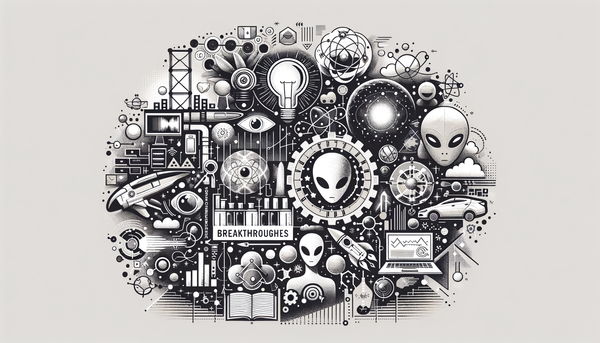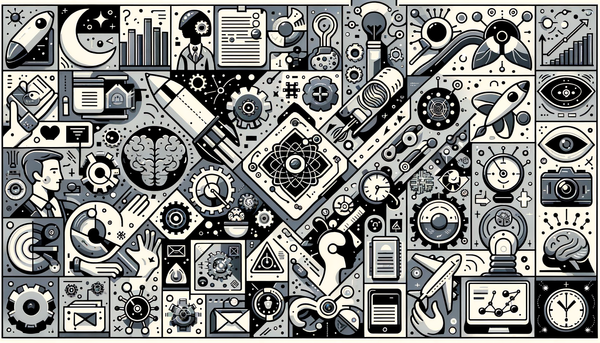AI Partnerships: Alibaba and Apple Collaboration

This article examines the dynamic evolution of artificial intelligence as major industry players join forces and compete, exploring ground-breaking collaborations like the Alibaba–Apple AI integration, disruptive moves such as Baidu’s free Ernie AI chatbot launch, the intense competitive battle between AI startups like Anthropic and OpenAI, and the growing concerns over privacy demonstrated by Meta’s AI message scanning initiative. Drawing from recent developments, the discussion delves into how these strategies and innovations signal broader transformations in the tech landscape, influencing mobile technology, generative AI accessibility, startup competitiveness, and ethical dimensions related to data privacy.
Forging New Alliances: The Alibaba–Apple AI Partnership
The tech world is buzzing as two colossal names—Alibaba and Apple—embark on a collaboration that promises to reshape the smartphone experience. In what might be described as a marriage of digital commerce expertise with consumer product innovation, Alibaba’s renowned proficiency in artificial intelligence is set to enhance the functionality of Chinese iPhones. By integrating advanced AI capabilities into mobile devices, this partnership is poised to deliver a more intuitive and seamless user experience.
Historically, mobile technology has evolved through breakthroughs that fundamentally altered user interactions. Now, as machines become smarter, everyday tasks can potentially be automated or simplified by contextual understanding. For example, imagine your smartphone intuitively managing your schedule, analyzing your emails, and even adapting photography settings to capture the perfect shot based on environmental cues. Such real-world applications of AI not only streamline user interactions but also create an ecosystem where hardware and software are symbiotically interwoven.
Alibaba’s experience in data analytics and machine learning, particularly in large-scale e-commerce, provides a significant advantage as the company ventures into consumer electronics integration. Meanwhile, Apple’s long-standing reputation for premium product design and user privacy creates a fertile ground for innovation that respects both technological prowess and user experience ethics.
This partnership showcases the core idea that collaboration between industry giants can act as a catalyst for pioneering solutions. It is not hard to imagine that soon, smartphones might preemptively resolve challenges, optimize battery usage, or even offer personalized recommendations, making the digital experience more natural and less intrusive. For more insight on such cross-industry collaborations, readers might find discussions on AI innovations featured on AI.Biz quite enriching.
Baidu’s Bold Move: The Free Ernie AI Chatbot
In another spirited move within the tech realm, Baidu is rapidly positioning itself as a formidable player in generative AI by offering its Ernie AI chatbot completely free of charge. This strategic decision stands in contrast to many other platforms that often require financial commitments or subscriptions for access to similar services. By opening the doors to widespread free use, Baidu aims to capture a broader user base in a market currently dominated by high-profile solutions.
This initiative reflects a broader trend in the democratization of AI—an effort to break down barriers to technology adoption. Generative AI, which supports natural language processing and other intricate language tasks, has emerged as a tool capable of transforming industries from customer service to creative arts. By removing the price tag on Ernie AI, Baidu is not only addressing the market’s demand for accessible AI technology but also challenging global competitors. This mirrors a competitive spirit where openness and accessibility can drive rapid innovation and foster community-driven development.
Technically speaking, offering a free AI chatbot has several implications. From a developmental perspective, a larger pool of users translates into more data, improved algorithms, and accelerated learning cycles—all crucial for refining AI capabilities. This concept aligns with the idea that free models help in creating a virtuous cycle of improvement and customer feedback. Furthermore, a free-to-use framework might spur experimentation among users, leading to novel integrations across different sectors, ranging from education to entertainment.
A relevant anecdote could be drawn from the early days of the internet. As the digital landscape transitioned from closed systems to open access, many groundbreaking innovations emerged simply because people had the freedom to experiment and innovate. In this modern context, Baidu's approach exhibits a similar pioneering mindset, marking an important milestone in the proliferation of generative AI technologies.
Startup Rivalries: Anthropic’s Growing Challenge to OpenAI
Amidst the high-stakes world of artificial intelligence, startups are increasingly coming to the forefront as agile challengers to entrenched industry leaders. Anthropic, a notable contender in the AI space, is quickly catching up with OpenAI in terms of fundraising—a sign of promising investor confidence and expectations of breakthrough innovation.
However, despite its financial strides, Anthropic faces a significant challenge: transforming capital investments into broad market adoption. The journey from acquiring funds to cultivating a loyal user base is complex, involving not only technological innovation but also trust-building, effective marketing, and robust product performance. The current landscape presents a classic scenario of “fundraising versus adoption,” where cash inflow signifies potential, yet real-world execution remains the true litmus test of success.
Learning from history, the tech world has witnessed numerous instances where immense funding did not immediately translate to market victory. A poignant example can be found in the era of dot-com startups, where many promising enterprises struggled with user engagement despite significant financial backing. This dual challenge of ensuring product utility while managing scalability is a recurring theme in innovation.
Anthropic’s strategic direction seems to prioritize ethical AI development—a domain in which both market leaders and startups face increasing scrutiny. By focusing on the ethical implications of AI, Anthropic not only aspires to develop transformative products but also attempts to preemptively address regulatory and societal concerns. In an era when questions like "The real question is, when will we draft an artificial intelligence bill of rights?" (Gray Scott) resonate across tech and policy forums, balancing innovation with responsibility becomes indispensable.
Such an approach underscores the delicate equilibrium between technological ambition and societal impact. Even as Anthropic collects significant investments, its real success will ultimately hinge on its ability to deliver AI functionalities that resonate with users while upholding trusted principles of safety and ethics. Explorations of similar startup dynamics and their pathways to market adoption are frequently featured on AI.Biz, offering readers more nuanced perspectives on the evolving competitive landscape.
Privacy in Peril: Meta’s Controversial AI DM Scanning Revelation
In a striking move that has stirred debates on privacy and data ethics, Meta recently alerted its users that its AI systems are now capable of scanning direct messages (DMs) if prompted. This development acts as a microcosm of the broader discourse on how far technology companies can extend their reach into private communications under the guise of enhanced functionality and user experience.
Modern AI systems are designed to be highly responsive, capable of interpreting vast amounts of unstructured data. However, the new capability of scanning DMs raises important questions about the balance between innovation and personal privacy. With privacy being one of the most fiercely guarded aspects of digital life, any move towards increased surveillance, even with transparent notifications, is bound to spark concerns among users and advocates alike.
This decision by Meta can be examined from multiple angles. On the one hand, such functionalities might be critical in preventing malicious activities, providing contextual enhancements, or even offering personalized recommendations based on one’s communication patterns. On the other hand, the prospect of artificial intelligence delving into private spaces—even with user consent—warns of a future where privacy boundaries could blur, redefining what is considered confidential in the digital era.
"Privacy is not an option, and it shouldn't be the price we accept for just getting on the internet." – A sentiment echoed by privacy advocates and echoed in Meta's latest development.
The ethical implications are substantial. As AI systems increasingly permeate everyday life, they inherit a dual responsibility; to empower technology users with smarter, more adaptive tools, and concurrently, to safeguard the sanctity of personal and private data. The debate around these advances reminds one of the famous line from the classic film, 2001: A Space Odyssey, where HAL 9000 asserts, "I'm sorry, Dave. I'm afraid I can't do that." This line, while originally scripted as a reflection on machine autonomy, now offers an ironic lens through which we examine modern AI’s intrusion into personal domains.
The implications are vast: while the scanning capability might be positioned as a measure to improve user experience or security, it also acts as a reminder of the thin line between technological advancement and privacy infringement. This duality is a recurring narrative in the age of AI, where every new feature prompts a fresh wave of regulatory and ethical debates. For those keen on exploring more about the intersection of AI and privacy, a detailed discussion can be found on AI.Biz.
The Broader Impact: Convergence, Competition, and Consciousness
When we take a step back and view these developments collectively, a broader theme emerges—one of convergence and competitive dynamism in the realm of artificial intelligence. On one hand, we see powerful alliances being formed, as evidenced by the Alibaba–Apple partnership, which combines distinct areas of expertise. On the other, free offerings like Baidu’s Ernie AI are lowering the barriers to AI technology access, potentially democratizing not only the technology but also the industries it touches.
Yet, in an ecosystem that thrives on rapid innovation, the ethical considerations remain just as critical as technological breakthroughs. The AI startup landscape, exemplified by the competition between Anthropic and OpenAI, further highlights the tremendous pressure on new ventures to balance financial viability with user trust and product reliability. The journey of these startups demonstrates that funding is merely one piece of the puzzle, with market penetration and community trust proving essential for long-term success.
As these examples illustrate, technological advancement does not happen in a vacuum. It is deeply interwoven with market dynamics, social values, and policy considerations. The evolution of AI continues to be a fertile ground for cross-disciplinary analysis—touching upon areas like behavioral economics, cognitive science, and even philosophy. One might recall the insightful observation by Fei-Fei Li: "AI cloud is just very, very nascent." This perspective not only underscores the early stage of many AI applications but also hints at the limitless potential for future innovations once foundational challenges are overcome.
In practice, the impact of these diverse AI initiatives could be profound. Consider, for instance, the way improved machine learning algorithms might revolutionize healthcare through more accurate diagnoses, or how enhanced natural language processing could lead to truly interactive tutoring systems. In another scenario, AI’s role in optimizing manufacturing processes might lead to smarter supply chains and reduced waste, delivering tangible economic benefits. The possibilities are vast, and each innovation builds upon the foundations laid by its predecessors.
Notably, these tech giants and startups are not just contending in a race for market share but are also shaping the ethical and regulatory frameworks of tomorrow’s technology. For instance, Meta’s transparency regarding AI scanning capabilities is a proactive step towards ensuring users remain informed, even though it has ignited debates about privacy. Such developments signal a broader shift in the digital landscape where ethical AI deployment becomes as crucial as technical innovation.
This interplay between technological, ethical, and market forces calls for a refined understanding of the responsibilities that come with harnessing AI’s power. Each new feature, each strategic partnership, and each bold announcement is a chapter in the unfolding story of AI—a story that is set to redefine industries, social norms, and the very way we interact with the world around us.
Real-World Applications and Future Implications
Let’s consider an example to appreciate the transformation underway. In the near future, the integration of advanced AI into smartphones as seen in the Alibaba–Apple initiative could lead to an era where our devices are not just tools but proactive assistants. Imagine an end-of-day summary automatically generated by analyzing your meeting transcripts or a health-care reminder system that uses biometric data to suggest personalized routines. Such scenarios are not far-fetched; they represent the convergence of convenience, science, and human-centered design that AI can bring.
Similarly, the free availability of generative AI models like Baidu’s Ernie unlocks opportunities for small businesses, educators, and content creators who previously might have been sidelined by prohibitive costs. The democratization of AI tools can lead to a surge in creativity and innovation across a spectrum of industries. Startups and individual entrepreneurs can now harness the power of generative technology to develop bespoke applications, tailored customer experiences, or even entirely new business models—all without the initial heavy investment that often stifles innovation.
On the startup front, Anthropic’s journey highlights that substantial funding does not always equate to market dominance. The current scenario reflects an essential reality in the AI sector—innovative ideas must be paired with relatable user experiences and a commitment to ethical standards. OpenAI’s widespread adoption serves as a benchmark, but it also sets a high bar that others must strive to surpass through practical utility and public trust. The case of Anthropic serves as a reminder that securing investments is only the beginning; the true test lies in converting potential into tangible, everyday impact.
The concerns raised by Meta further illuminate the need for a careful reassessment of privacy policies in an age where technology permeates almost every facet of life. The debate invites stakeholders—from tech companies to regulators—to consider: How do we ensure that AI’s benefits are harnessed without unwittingly compromising individual freedoms? Drawing from historical debates around surveillance and data rights, it is clear that the framework for responsible AI will require collaborative efforts between industry and government. For those investigating these questions further, detailed analyses are available at AI.Biz, providing insights into the ongoing policy discussions.
Looking Ahead: The Dual-edged Sword of AI Innovation
As we move forward, one cannot ignore that the journey of artificial intelligence is marked by both promise and prudence. The exciting collaborations between major corporations, the bold free offerings of generative chatbots, and the competitive yet cautious maneuvers of startups all underscore a landscape brimming with potential. However, they also serve as potent reminders that innovation must be tempered with ethical considerations and responsible management.
AI technologies hold the promise of reshaping society in countless ways—from enhancing our daily interactions with smart devices to revolutionizing entire industries with predictive analytics and adaptive interfaces. But as we witness these transformations, the need for a balanced approach grows ever more essential. As one of our favorite reflections in the tech community puts it, “I'm sorry, Dave. I'm afraid I can't do that.” Though originally uttered by HAL 9000 in a fictional context, this line encapsulates the inherent tension in AI advancements: the struggle between capability and control, between innovation and oversight.
Whether it’s through strategic partnerships or competitive product launches, the common denominator in today's AI evolution is a relentless drive towards making technology more accessible, intuitive, and integrated into the very fabric of our lives. But the journey is far from linear. With every advancement comes a new set of challenges—be it privacy concerns, market adaptation hurdles, or ethical debates over data usage. The path forward will require not just technological ingenuity, but also a mature understanding of the societal impact of these innovations.
In sum, the current trends signal a transformation that is as multifaceted as it is rapid. The convergence of corporate powerhouses, the democratization of AI tools, and the ethical dilemmas raised by deep technological integration are all threads in the rich tapestry of modern AI. Investors, entrepreneurs, regulators, and everyday users alike stand as both witnesses and participants in a revolution that’s redefining what is possible in the digital age.
Further Readings
- Alibaba and Apple’s AI Integration Announcement
- Baidu Launches Free Ernie AI Chatbot
- Anthropic’s Fundraising Journey Amidst Fierce Competition
- Meta’s New AI DM Scanning Policy and Privacy Implications
This exploration into the world of artificial intelligence underscores that while each breakthrough brings us closer to a smarter, more interconnected future, it is equally important to tread carefully, ensuring that progress is measured not just in technological leaps but in the responsible stewardship of the powerful tools we create.




